
In Linux systems, various commands are used for system inspections to check system status, performance, configuration, and security. Here are some commonly used Linux inspection commands and their descriptions:
1. System Information
● uname -a:Displays all system information, including kernel version, hostname, etc.
● hostname:Displays or sets the system’s hostname.
2. System Load and Performance
● top:Real-time display of system processes and resource usage.
● htop (requires installation): An enhanced version of the top command that provides a more user-friendly interface.
● vmstat:Displays virtual memory statistics.
● iostat:Displays CPU and input/output statistics.
3. Disk Usage
● df:Displays disk space usage.
● du:Displays disk usage of specified directories or files.
4. Memory Usage
● free:Displays total memory, used memory, free memory, etc.
● meminfo:Displays more detailed memory usage information.
5. Network Status
● ifconfig (replaced by ip addr in some newer systems): Displays network interface configuration.
● ip addr:Displays the IP address of network interfaces.
● ping:Tests network connectivity.
● netstat:Displays network connections, routing tables, interface statistics, etc.
6. Process and Task Management
● ps:Displays currently running processes.
● pstree:Displays processes in a tree structure.
● kill:Sends a signal to a specified process.
7. System Logs
● dmesg:Displays or controls the kernel ring buffer.
● journalctl (systemd system): Queries and displays system logs.
8. System Service Management
● systemctl (systemd system): Controls the systemd system and service manager.
● service:Starts, stops, or views the status of system services.
9. File System and File Operations
● ls:Lists directory contents.
● find:Finds files in the directory tree.
● grep:Searches text files and prints matching lines.
10. User and Permission Management
● who:Displays information about currently logged-in users.
● w:Displays activity of logged-in users.
● id:Displays user and group IDs for a specified user.
● sudo:Executes commands with superuser privileges.
11. Security and Firewall
● iptables:Displays or manages the Linux kernel’s network firewall rules.
● firewall-cmd (for systems using firewalld): Controls the firewalld firewall.
12. Package Management
● apt (Debian/Ubuntu): Package management tool.
● yum (Fedora/CentOS): Package management tool.
● dnf (Fedora/RHEL): Next-generation yum package manager.
13. System Updates and Patches
● apt-get update (Debian/Ubuntu): Updates package index.
● apt-get upgrade:Upgrades all upgradable packages.
● yum update (Fedora/CentOS): Updates packages.
14. Hardware Information
● lshw:Lists system hardware information.
● lscpu:Displays CPU architecture information.
15. Performance Monitoring Tools
● iotop:Monitors disk I/O usage.
● nmon (requires installation): A performance monitoring tool that displays CPU, memory, network, and disk usage.
Course Related Information
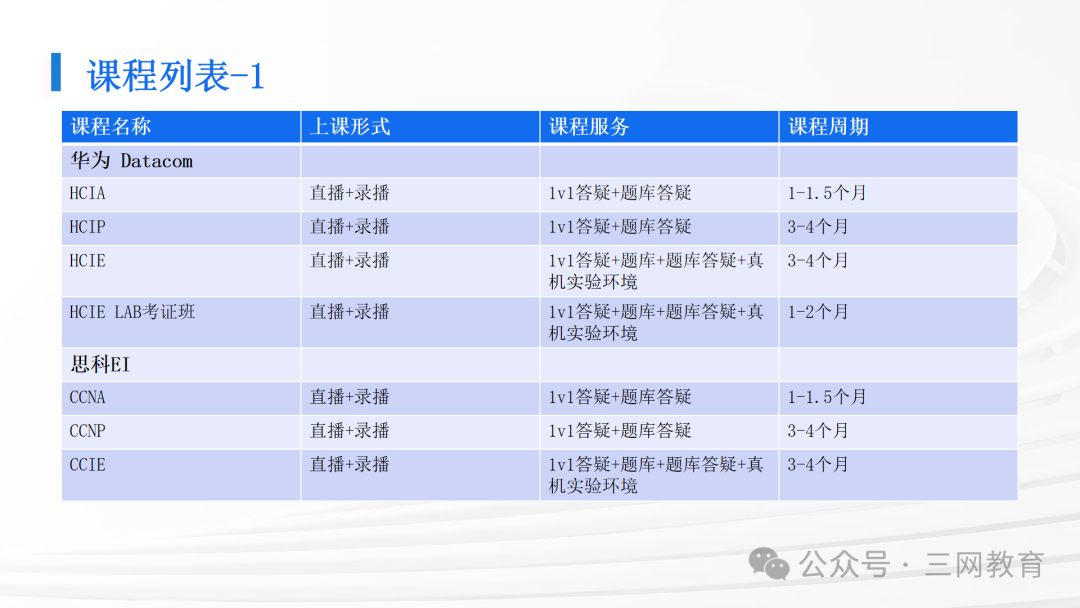
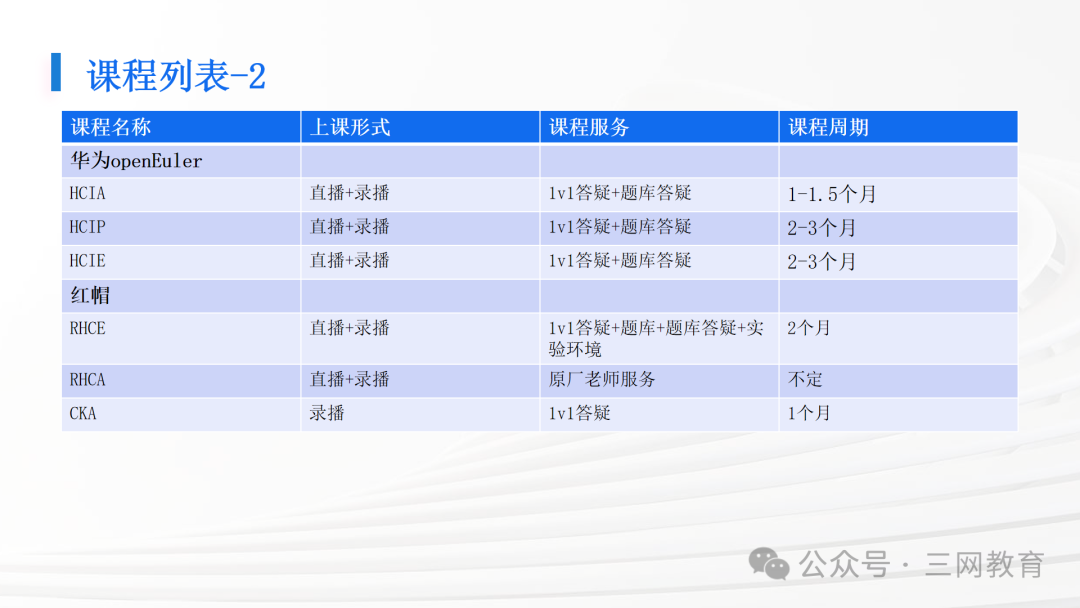


Course Consultants
Why Choose Sannet Education
01
Rich Training Background
Sannet Education was founded in 2006, with 18 years of cultivation, achieving fruitful results, having trained over 10,000 high-end IT talents for Suzhou and surrounding cities, with students in various domestic and foreign enterprises and countries such as the USA, Canada, Japan, New Zealand, South Korea, Singapore, and Hong Kong and Macau. Sannet’s clientele covers government, financial securities, foreign enterprises, large state-owned enterprises, and universities.
02
Professional IT Certification Training Exam Center
Sannet Education is a training center authorized by multiple original manufacturers. Currently, our training services cover Huawei, Cisco, Red Hat, Oracle, Microsoft, VMware, IT project management, cloud computing, and other technical fields. We are also a PROMETRIC authorized exam center and an ATAC authorized exam center.
03
Strong Teaching Faculty
Sannet collaborates with top technical manufacturers in the industry, signing multiple senior technical experts to provide professional IT certification courses. We have HCIE/CCIE/RHCA/OCM instructors with rich project and teaching experience, dedicated to helping students and enterprises effectively enhance their competitiveness.
04
The Common Choice of Many Valuable Clients
Clients include China Post, China Telecom, China Mobile Suzhou R&D Center, Huayan Water, Bosch Automotive, Jardine Matheson, Suzhou Earthquake Survey Research Institute, Hillstone Networks, Fujitsu, Jiangsu Tianchuang, Inner Mongolia Shenhua Group, and many more.
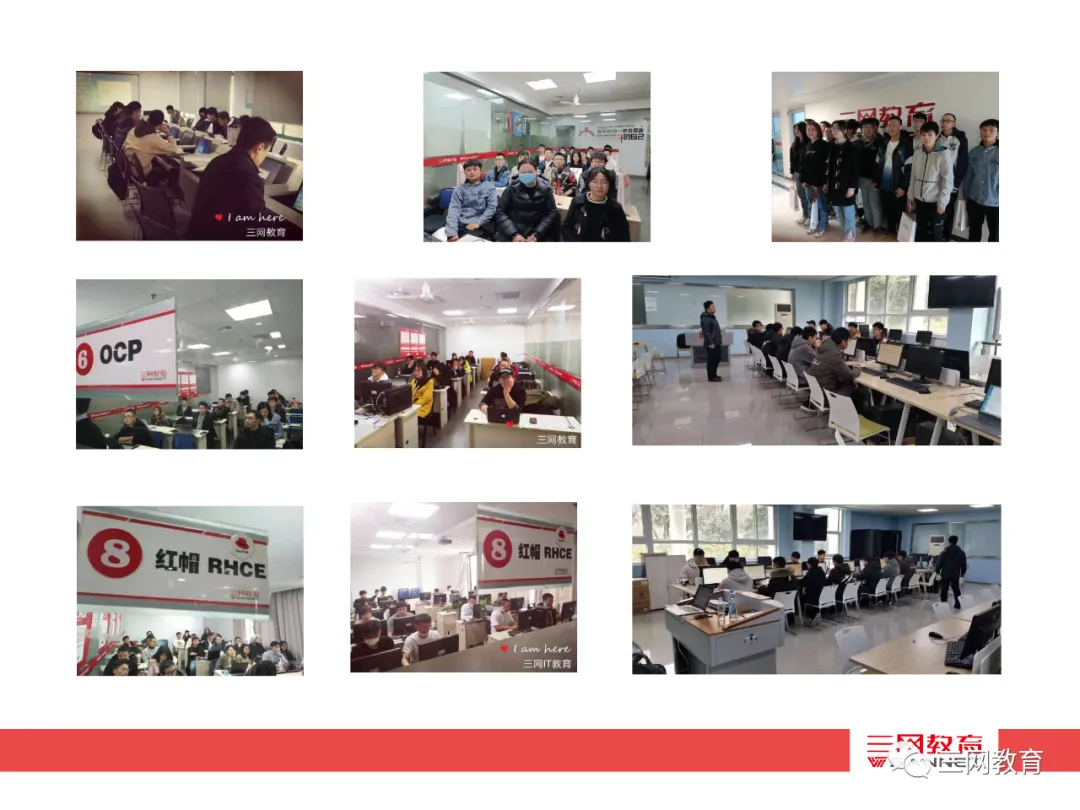

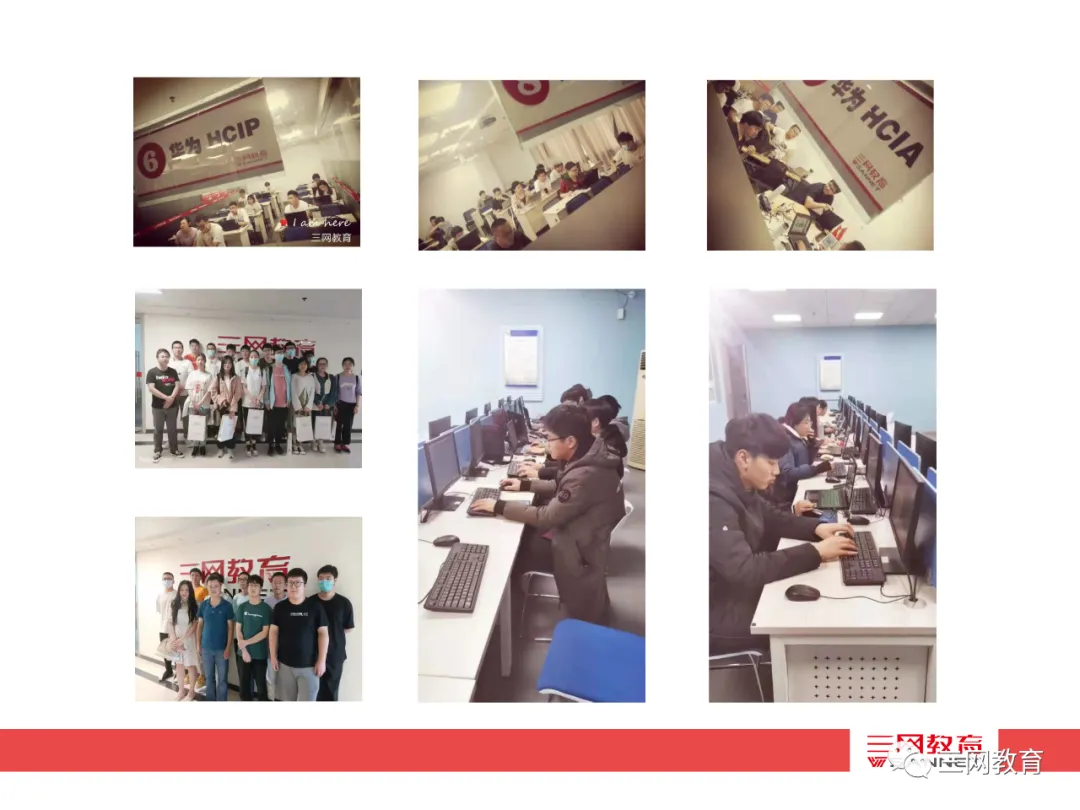

– END –
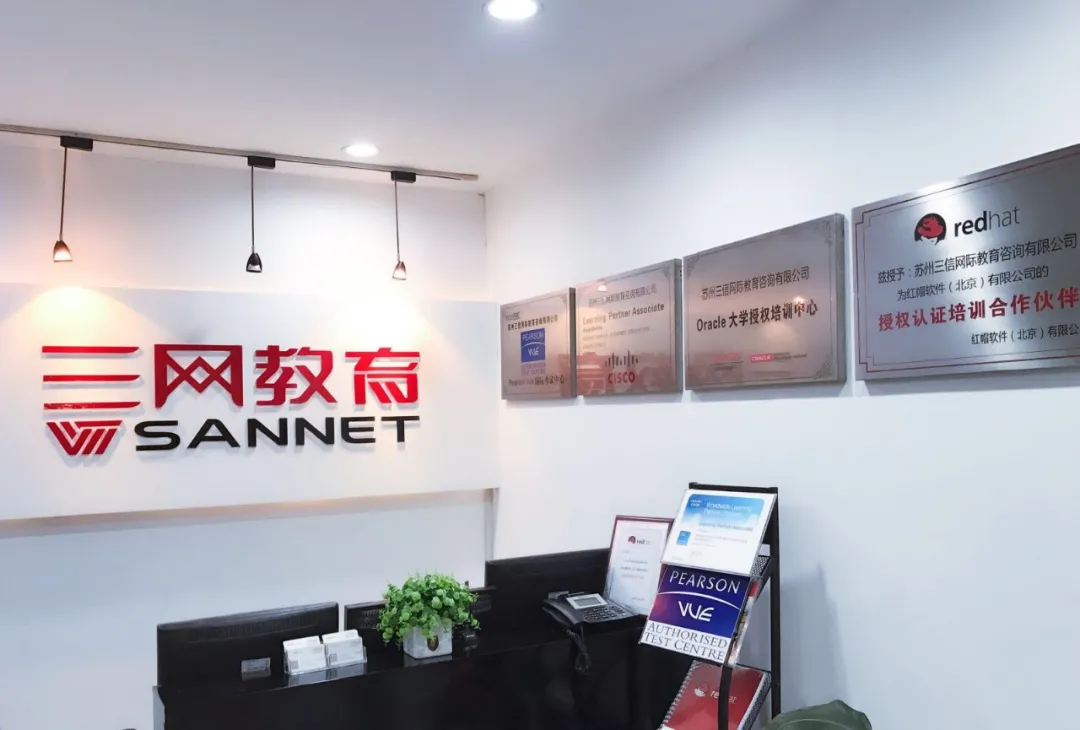
///
Professional • Strength • Integrity • Value

WeChat ID:hcie1024
Official Website:www.sannet.net
Consultation Hotline:17365375526
Consultation Phone:0512-82289966
Address:Suzhou City, Xiangcheng District, Nancheng Road 68
